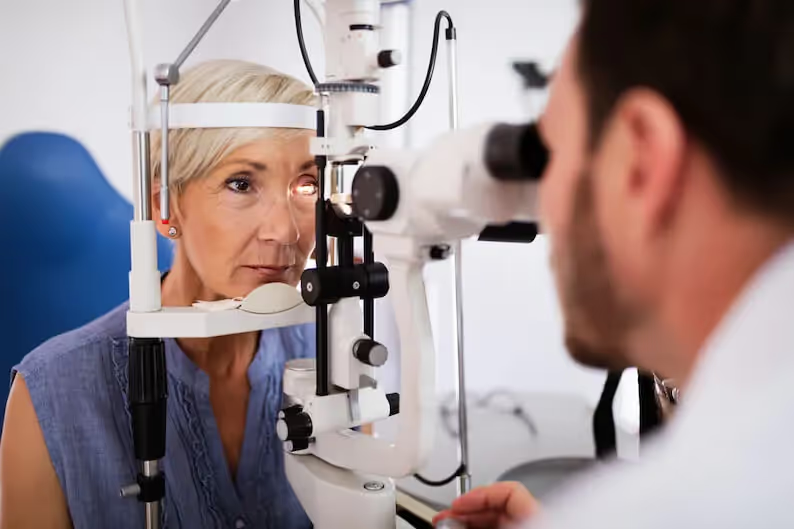It's no secret that our bodies change as we age. The aging process affects how we sleep, how we feel, how we move—and yes, even how we handle alcohol. While a drink a day may seem harmless, enjoying a cocktail or two can have a major effect on your health. Understanding the relationship between alcohol and aging is important for making smart choices that promote healthy aging.
How Aging Affects the Way We Process Alcohol
As we age, our bodies have a more difficult time processing alcohol. Our biological age—not the number of candles on the cake—can impact how alcohol moves through the body. This means that even if you've been drinking the same amount of alcohol for years, the effects of it can feel stronger or last longer now. Why? It's because older adults tend to have less water in their bodies, which means alcohol stays in the bloodstream longer. Plus, liver function slows down, so it takes more time for alcohol to leave your system. This can increase the risk of side effects like dizziness, confusion, or a higher risk of falls.
The Effects of Alcohol on Health Conditions
Many older adults live with chronic health conditions like diabetes, high blood pressure, or liver disease. Drinking alcohol – especially too much of it – can make these conditions worse or more difficult to manage. For example:
- High blood pressure: Alcohol can raise your blood pressure, putting you at greater risk for stroke or heart disease.
- Diabetes: Alcohol can cause blood sugar to spike or drop, making it more difficult to keep your diabetes under control.
- Liver disease: If you already have liver problems, drinking alcohol—even in small amounts—can speed up liver damage.
- Mental health: Alcohol can make symptoms of depression or anxiety worse, and it may interfere with any medications you're taking for mental health.
And speaking of medications, alcohol can also interfere with how well certain prescription drugs work. It may increase side effects or reduce how effective the drug is. Always talk to your doctor or pharmacist about mixing alcohol with your medications.
How Much Alcohol Is Too Much?
Understanding the appropriate amount of alcohol for older adults is key to avoiding complications and adverse effects. But how much is too much? How much can you safely drink without risking your health? The answer is different for everyone. But the National Institute on Alcohol Abuse and Alcoholism recommends that adults over 65 who drink alcohol limit their intake to no more than one drink a day. That means:
- 5 ounces of wine
- 12 ounces of beer
- 1.5 ounces of distilled spirits (like vodka, whiskey, or gin)
This is considered to be moderate alcohol use. Anything more than this could put your health at risk. Binge drinking—which is defined as four or more drinks in a single sitting for women or five or more for men—is especially dangerous. It raises the risk of accidents, falls, and serious health complications. And that doesn't just apply to older adults. Even if you don't feel drunk, your body may still be struggling to process what you've had. That's why it's important to pay attention to how much and how often you drink alcohol.
Recognizing Alcohol Use Disorder in Older Adults
Alcohol abuse is not just a concern for younger individuals—it also affects many older adults. Many seniors quietly struggle with alcohol use disorder (AUD)—a condition where someone continues to drink even though it causes problems in their life. This can happen for a number of reasons. Some people turn to alcohol after the loss of a spouse, to cope with loneliness, or to manage chronic pain or depression. But drinking often makes these challenges worse, not better. Signs of alcohol use disorder in older adults can include:
- Drinking more than intended
- Hiding alcohol or lying about how much you drink
- Falling, feeling confused, or forgetting things more often
- Skipping meals or losing interest in daily routines
- Continuing to drink even when it causes health or relationship problems
If this sounds like you or someone you care about, know that help is available—and it's never too late to make a change.
Making Healthier Choices for Aging Well
One of the best ways to support healthy aging is to take care of your body and mind. That includes paying attention to your alcohol consumption. Drinking too much can speed up the aging process, affecting everything from your memory to your balance to your heart health. It can also affect your appearance, often making you look older than you are, by dehydrating the skin and interfering with sleep. Cutting back—or quitting altogether—can provide you with more energy, improve your mood, and reduce your risk of disease. Many older adults find that they feel better overall when they limit how much alcohol they consume. For those who want to maintain their health by stopping altogether or enjoying the occasional drink, here are some tips: Track your intake: Keep a log of how much you drink each week. Stick to the limit: Try to have no more than one drink per day. Have alcohol-free days: Choose a few days each week where you don't drink at all. Stay hydrated and fed: Never drink on an empty stomach, and drink water between alcoholic drinks. Find support: Talk to your doctor or reach out to local support groups if you want to cut back or stop drinking.
Take Charge of Your Health
Getting older doesn't mean you have to give up everything you enjoy. But when it comes to alcohol, you need to be mindful of how it is affecting you and your health. Whether you're dealing with a medical condition, taking medication, or simply want to feel your best, cutting back on alcohol or quitting altogether can help improve your overall health. If you're concerned about your alcohol use or how it might be affecting your health, talk to a VIPcare provider. We're here to support you and can help you understand the effects of alcohol on your health and work with you on a plan that supports your goals for healthy aging. Schedule an appointment today!




%20(1).jpg)